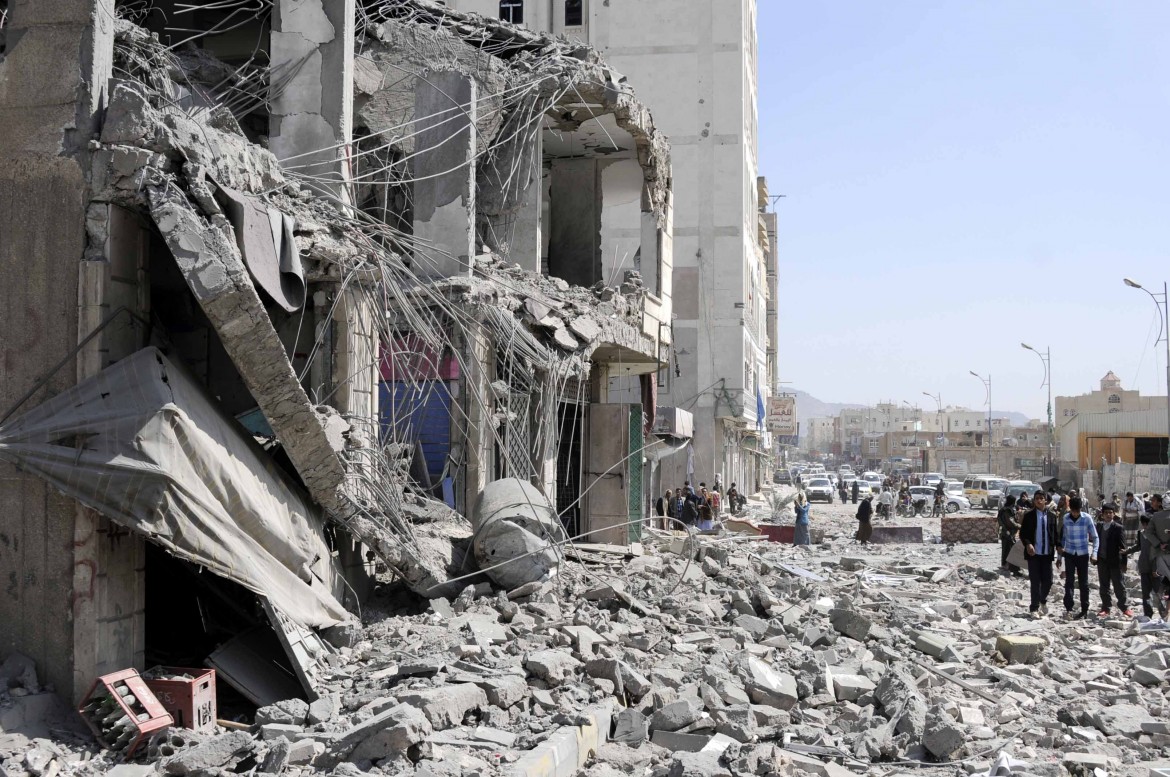Analysis
In Yemen, it’s business as usual, but now Europe has no more excuses
A British court ruling Thursday marked a major step in the campaign toward European disarmament. The decision, which came after an appeal by anti-arms trade activists, suspends the sale of British weapons to Saudi Arabia.

Thursday might be remembered as a crucial landmark in the series of international actions aimed at stopping weapons sales to countries involved in armed conflict, particularly the one in Yemen.
On this date, two very symbolic events took place, which will contribute to strengthening the recent positive steps in this direction, pursued for quite some time by civil society organizations such as the Italian Rete Disarmo (“Disarmament Network”) as well as its national and international partners.
The first piece of good news came from Genova: the Teknel generators—which we believe would have been put to military use, and which were supposed to be shipped to Jeddah on behalf of the Saudi National Guard—will not be loaded on the ship belonging to the Saudi company Bahri. The blocking of their export was made possible by the collective action of the workers of the port of Genova, which also prevented an earlier attempt to ship the generators on May 20.
The second good news came from London, where the High Court of Justice of Great Britain upheld the appeal filed by the Campaign Against Arms Trade, one of the partners of Rete Disarmo within the European Network Against Arms Trade, which had filed legal action some years ago against the British government due to the sale of arms to Saudi Arabia.
It’s a very interesting ruling, coming after the initial court decision in 2017, which ruled in favor of the government. Now, the appeals court ruled in favor of the CAAT activists. This decision is important because it suspends the licenses for selling British arms to Riyadh with immediate effect, on the basis of two main arguments: one based on a series of reports on human rights violations and war crimes issued by various organizations, and one based on the lack of oversight on the part of the government regarding the risk that British military equipment might be used to commit human rights violations.
The arms shipments have been blocked while the government implements the improved control processes ordered by the court, thus emphasizing the fact that the arms trade cannot be considered merely ordinary business.
This decision is of high importance for all the other legal initiatives—and not only that—which are currently pending throughout Europe. This also involves Italy: the UK court decision will be relevant for the ongoing investigation by the Rome prosecutor’s office of the complaint filed in April 2018 by the Rete Disarmo, ECCHR Berlin and Mwatana for Human Rights (a Yemeni NGO), alleging violations of Law 185/1990, the ATT (Arms Trade Treaty) and the EU Common Position on the export of weapons, as well as possible complicity in the crime of murder.
The issue of the flow of Italian arms to the Saudi-led coalition active in the Yemen conflict will soon be discussed in the Chamber of Deputies as well, where a motion presented by the Liberi e Uguali party will go up for debate in a few days.
Even more good news comes in the form of the blockades that the port workers in France and Belgium have organized against the ships owned by the Bahri company, and the revocation of a number of licenses allowing the export of light weaponry to Saudi Arabia by the Belgian Council of State, licenses which had already been suspended by the courts.
More and more, it is becoming impossible for the continent’s governments to pretend that European arms are not involved in the massacre in Yemen. On the one hand, this recognizes the correctness of the positions taken up by civil society and of the campaigns during recent years; on the other hand, it highlights once again that the national governments—except for those that have begun to take concrete steps to the contrary, namely those in Germany, the Netherlands, Denmark and Norway—are in violation of the rules that have been agreed to at the international level (and are undoubtedly conscious of this, by this point).
If we cannot enforce these rules, which prohibit the shipping of arms to countries involved in conflict or where serious human rights violations are taking place, it will be even more difficult to do so for situations which are not so blatantly clear. There was further confirmation of the guilt of the Saudi rulers on Wednesday, in the form of a UN report regarding the responsibility of the Saudi monarchy for the murder of the journalist Jamal Khashoggi.
London, Genoa, France, Belgium: there are more and more initiatives and rulings that make clear just how crucial it is to stop the flow of arms—because the flow of arms towards never-ending conflicts perpetuates war, fuels armed warfare and hurts civilians, who are the main victims of war.
Originally published at https://ilmanifesto.it/in-yemen-business-as-usual-ma-ora-leuropa-non-ha-piu-scuse/ on 2019-06-21
